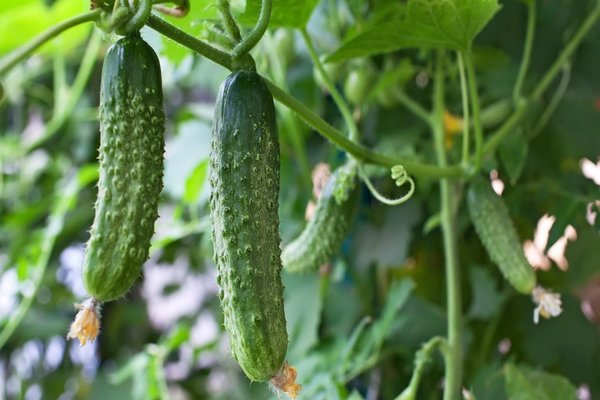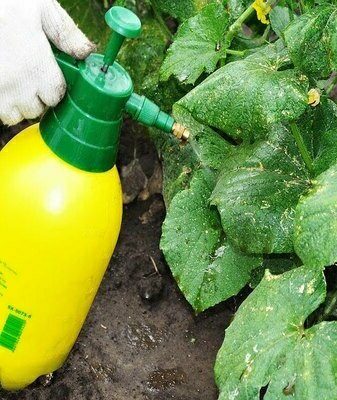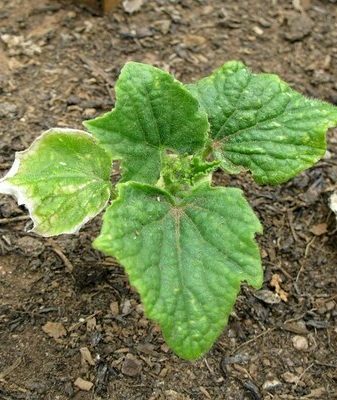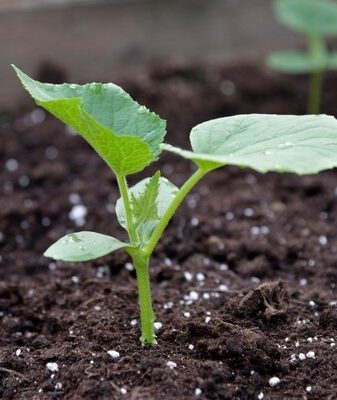Why are cucumbers bitter?
Content:
Cucumbers are an annual herb, from the pumpkin family, a vegetable. Since this is a crop from the pumpkin family, it contains a substance such as cucurbitacin. Thanks to him, bitter cucumbers grow in our beds.
How are bitter cucumbers related to cucurbitacin?
Cucurbitacin is an element with anticancer, antimicrobial and anti-inflammatory properties, but it is toxic. Vegetable crops need it for protection reasons, that is, from eating the fruits of the fauna of the world. This substance is produced in culture on an ongoing basis. It is found in all parts of the plant: 1) Stems; 2) Foliage; 3) The insides of a ripe vegetable; 4) The peel of a ripe vegetable. For the production process, approximately nine genes are responsible. The plant increases the production of this substance if it is under stress.
This can happen due to inappropriate conditions. For example, due to the scorching sun or high humidity. Also, plants can experience abundant stress due to a lack of moisture and high temperature jumps. All of these factors increase cucurbitacin production. And for this, of course, the peel and the fruits themselves begin to give off a bitter aftertaste.
Why are cucumbers bitter? Main reasons
There may be several of them: 1) Lack of moisture - rare watering; 2) Waterlogged soil - too abundant and frequent watering, or excessive rainfall; 3) Scorching sun rays - the landing site was chosen too bright; 4) Too low air humidity, or too much heat; 5) Lack of nutrition - the culture did not receive the necessary amount of microelements, macronutrients and nutrients; 6) Unsuitable seeds - when collecting seeds, they must be taken from the front of the fruit, not from the back; 7) Dense planting of crops - the plants are planted too close to each other and do not get everything they need in the necessary abundance; 8) In the process of growing, the cucumber seedlings suffered the disease; 9) The irrigation water was too cold.
Bitter cucumbers: measures to prevent bitterness
Starting from the list of reasons, it is not difficult to make a list of preventive actions. In fact, in order for the cucumbers not to taste bitter, you will have to try. It is much easier to acquire varieties that are not prone to this process. These are the varieties that do not produce cucurbitacin, for example: 1) Berendey; 2) Harmonist; 3) Egoza; 4) Quadrille; 5) Horses; 6) Courage; 7) Lilliputian; 8) Masha; 9) Ant; 10) Shchedryk; 11) Rodnichek; 12) Crunch and so on.
Among gardeners there are guesses that the varieties intended for pickling are not bitter, but this is a misconception.
Seat selection

The landing site must be suitable. Namely: it should not be under the scorching sun rays. Lighting should be diffused. Cucumber bushes will feel great in the shade of corn thickets, or in shady conditions, which give trees with a lush crown. Also, in order to protect from bright sunlight, a covering material is also suitable.
Watering
Watering should be regular. If you water the cucumbers not often, and create the conditions of "excessive drought-abundant watering", then the plant will be stressed and then the fruits will be guaranteed to be bitter. Therefore, timely watering is important, it is also important to use warm water for this, you can even warm it under the sun throughout the day.
Location and neighborhood
Planting cucumbers so that they are not bitter also needs to be correct. Avoid places near strawberries and raspberries.For these crops very quickly absorb all the useful elements and water from the soil, and leave nothing to the cucumbers.
Correct care
You need to look after correctly. Namely: mulch crops, destroy weeds, loosen the soil. All this will help maintain comfortable conditions for active growth and development.
Danger of cold weather
When growing cucumbers in greenhouse conditions, it is not necessary to open the greenhouse doors on cool days. Due to the flow of cold air, the plants will experience stress. If the culture is grown in greenhouse conditions, then in the cool it should be covered.
Danger of summer heat
The plants also need to be protected from the heat. Strong heat and low air humidity have a detrimental effect on the culture. If the weather is too hot, then in the morning and evening, the plants should be spilled with lukewarm water. When grown in open areas, you can cover with a white material, and in greenhouses, hang a reflective film.
Suitable soil
Clay soil - will not work. The soil should be light, loose, well-drained and peaty. If you need to reduce the acidity, then you can add wood ash.
The need for fertilizers and fertilizing
Getting the required micronutrients, macronutrients and nutrients is a very important part. The cucumber bushes need to be fertilized. You can feed it with rotted organic matter.
Bitter cucumbers: what to do? How to proceed?
If the first vegetable plucked turned out to have a bitter taste, then most likely all the fruits from this bush will be the same.
You can eat them, you will not get poisoning. It is believed that they have even more useful elements than simple ones. But you don't need to overdo it with them either. If the amount eaten is large, gastric indigestion and intestinal upset are possible.
Why are cucumbers bitter and what to do about it: video
Bitter cucumbers: how to get rid of bitterness
If only the peel of the cucumbers is bitter, then you just need to peel it. If the pulp itself is bitter, then you need to cut off the ass of the cucumber by about fifteen millimeters and lose it until the white foam ceases to stand out. After that, you need to wash the cucumber and you can eat it.
The most productive method is considered: 1) Soaking; 2) Heat treatment. During the steeping process, the cucurbitacin compounds are destroyed and volatilized. To do this, the cucumbers need to be soaked for twenty-four or twelve hours. The water must be cold, and it must also be changed periodically so that it does not heat up.




